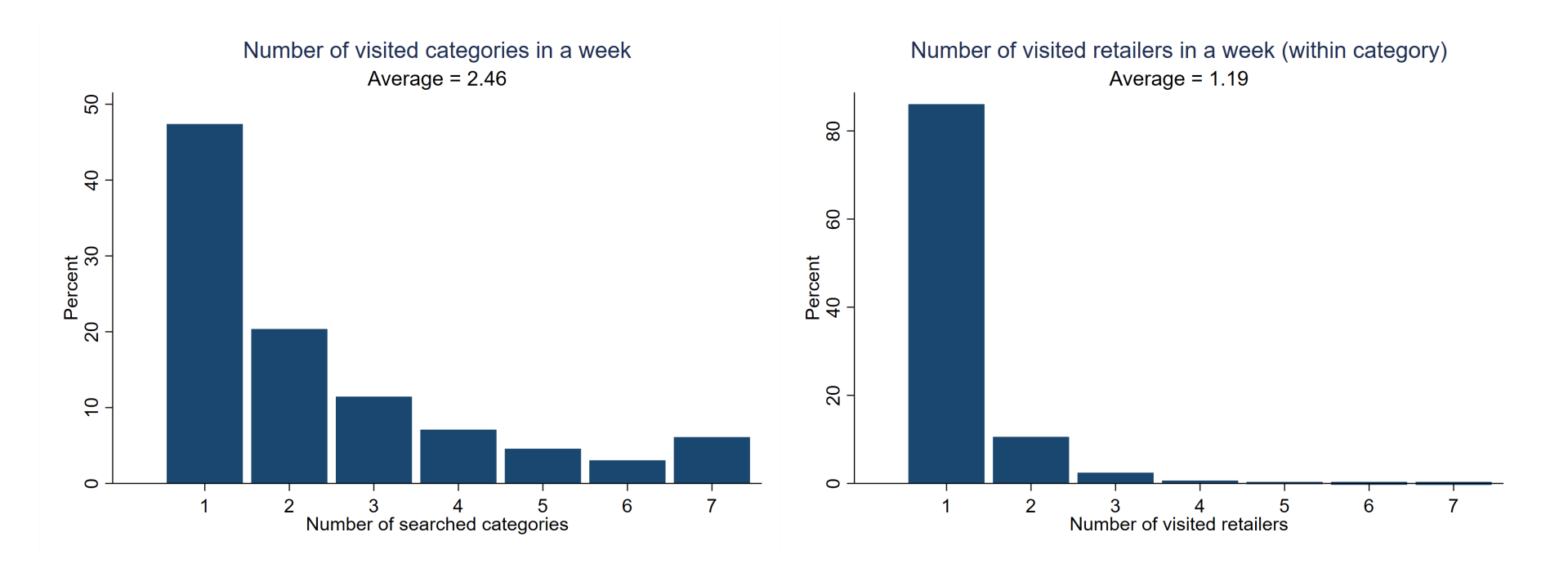Make Every Second Count: Time Allocation in Online Shopping
Joint with
Yufeng Huang
and Ilya Morozov.

Abstract
Search frictions play an important role in shaping consumer behavior and competition. Despite their importance, we still know little about what causes them. In this paper, we show that the opportunity cost of time is a key driver of search frictions in online retail. To this end, we build a comprehensive e-commerce dataset that tracks how consumers spend their shopping time across retailers, categories, and products. We show that in colder weather, when outdoor activities become less appealing and the opportunity cost of time decreases, consumers spend more time shopping online. They deepen their search by examining more products per category and broaden it by visiting more product categories, which leads to additional purchases. Building on these findings, we develop a novel model of time allocation and search to estimate search costs in online retail and quantify the role of opportunity costs. Model estimates show that the opportunity cost of time explains a significant portion of search frictions.